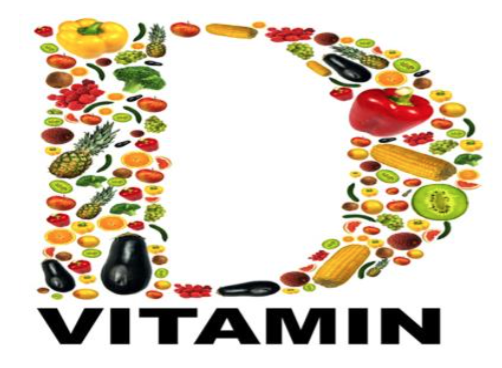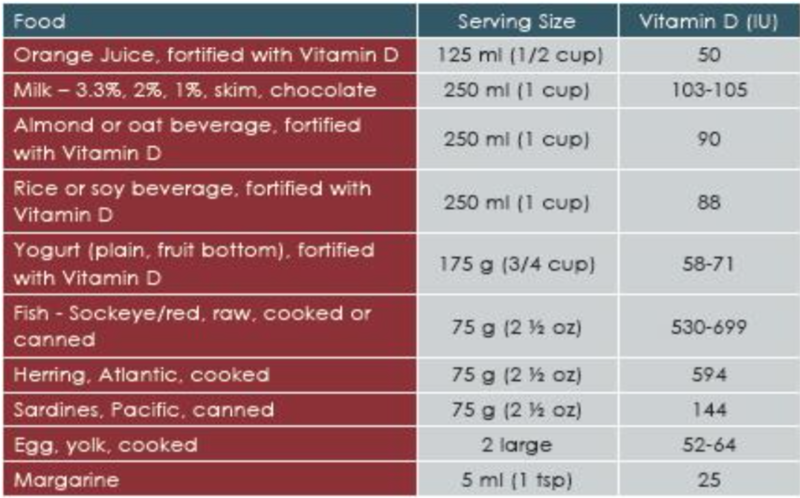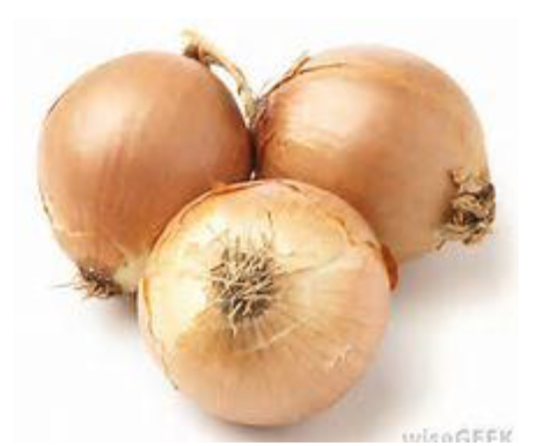In Addition
Vol 5 अंक 1
January/February 2014
Sai Vibrionics offers health information and articles for educational purposes only; this information is not meant as medical advice. Counsel your patients to see their medical doctor about their specific medical condition.
Vitamin D: Benefits and Disease Prevention

Vitamin D is a nutrient found in some foods essential for health and the maintenance of strong bones. It does so by helping the body to absorb calcium (one of bone's main building blocks) both from food and supplements. Together with calcium, vitamin D helps protect older adults from osteoporosis.
Vitamin D is important to the body in many other ways as well. Muscles need it to move, nerves need it to carry messages between the brain and every body part, and the immune system needs vitamin D to fight off invading bacteria and viruses.
Vitamin D and Sunlight
Your body can make its own vitamin D when you expose your skin to sunlight. Vitamin D is unique among vitamins, because your body turns vitamin D into a hormone. This hormone is sometimes called ―activated vitamin D‖ or ―calcitriol.‖
Getting the right amount of vitamin D doesn‘t depend on the foods you eat. To get enough vitamin D you need to expose your skin to sunlight regularly and you may also need to take supplements. This makes getting the right amount a little more complex compared to other vitamins and minerals.
However, despite the importance of the sun to vitamin D synthesis, it is prudent to limit exposure of skin to sunlight in order to lower the risk of skin cancer. When out in the sun for more than a few minutes wear protective clothing and apply sunscreen with an SPF (sun protection factor) of 8 or more. Tanning beds also cause the skin to make vitamin D, but pose similar risks for skin cancer.
Why Do We Need Vitamin D?
-
Absorption and metabolism of calcium and phosphorous, which have various functions, especially in the maintenance of healthy bones.
-
Regulates the immune system.
-
Aids the immune system - vitamin D may be an important way to arm the immune system against disorders like the common cold, report scientists from the University of Colorado, Denver School of Medicine, Massachusetts General Hospital and Children's Hospital Boston.
-
MS risk - it may reduce the risk of developing multiple sclerosis. Multiple sclerosis is much less common the nearer you get to the plentiful sunlight of the tropics, according to Dennis Bourdette, chairman of the Department of Neurology and director of the Multiple Sclerosis and Neuroimmunology Center at Oregon Health and Science University, USA.
-
Maintaining cognitive functions - vitamin D may play a key role in helping brain function in later life, according to a study of 3000 European men between the ages of 40 and 79.
-
Healthy body weight - vitamin D probably plays an important role in maintaining a healthy body weight, according to research carried out at the Medical College of Georgia, USA.
-
Asthma symptoms and frequency - it reduces the severity and frequency of asthma symptoms, and also the likelihood of hospitalizations due to asthma, researchers from Harvard Medical School found after monitoring 616 children in Costa Rica.
-
Rheumatoid arthritis - it has been shown to reduce the risk of developing rheumatoid arthritis in women.
-
Protects from radiation damage - a form of vitamin D might be one of our body's main protections against damage from low levels of radiation, say radiological experts from the New York City Department of Health and Mental Hygiene.
-
Vitamin D and cancer risk - various studies have shown that people with adequate levels of vitamin D have a significantly lower risk of developing cancer, compared to those whose levels are low. Vitamin D deficiency was found to be prevalent in cancer patients regardless of nutritional status in a study carried out by the Cancer Treatment Centers of America.
-
T.B. recovery - high vitamin D doses can help people recover from tuberculosis more rapidly, researchers reported in September 2012, in the Proceeding of the National Academy of Sciences (PNAS).
Heart attack risk - a study published in September 2012 suggested that low levels of vitamin D may increase the risk of heart attack and early death.
Eight Important Facts about Vitamin D
1. Vitamin D is produced by your skin in response to exposure to ultraviolet radiation from natural sunlight.
2. The healing rays of natural sunlight (that generate vitamin D in your skin) cannot penetrate glass. So you don't generate vitamin D when sitting in your car or home.
3. It is nearly impossible to get adequate amounts of vitamin D from your diet. Sunlight exposure is the only reliable way to generate vitamin D in your own body.
4. A person would have to drink ten tall glasses of vitamin D fortified milk each day just to get minimum levels of vitamin D into their diet.
5. The further you live from the equator, the longer exposure you need to the sun in order to generate vitamin D.
6. Sufficient levels of vitamin D are crucial for calcium absorption in your intestines. Without sufficient vitamin D, your body cannot absorb calcium, rendering calcium supplements useless.
7. Chronic vitamin D deficiency cannot be reversed overnight: it takes months of vitamin D supplementation and sunlight exposure to rebuild the body's bones and nervous system.
8. Even weak sunscreens (SPF=8) block your body's ability to generate vitamin D by 95%. This is how sunscreen products actually cause disease -- by creating a critical vitamin deficiency in the body. It is impossible to generate too much vitamin D in your body from sunlight exposure: your body will self-regulate and only generate what it needs.
Vitamin D is "activated" in your body by your kidneys and liver before it can be used, therefore Kidney or liver disease or liver damage can greatly impair your body's ability to activate circulating vitamin D.
Diseases and Vitamin D Deficiency
Osteoporosis is commonly caused by a lack of vitamin D, which greatly impairs calcium absorption.
-
Sufficient vitamin D prevents prostate cancer, breast cancer, ovarian cancer, depression, colon cancer and schizophrenia.
-
"Rickets" is the name of a bone-wasting disease caused by vitamin D deficiency.
-
Vitamin D deficiency may exacerbate type 2 diabetes and impair insulin production in the pancreas.
-
Obesity impairs vitamin D utilization in the body, meaning obese people need twice as much vitamin D.
-
Vitamin D is used around the world to treat Psoriasis.
-
Vitamin D deficiency is reported in schizophrenia.
-
Seasonal Affective Disorder is caused by a melatonin imbalance initiated by lack of exposure to sunlight.
-
Chronic vitamin D deficiency is often misdiagnosed as fibromyalgia because its symptoms are so similar: muscle weakness, aches and pains.
-
Your risk of developing serious diseases like diabetes and cancer is reduced 50% - 80% through simple, sensible exposure to natural sunlight 2-3 times each week.
-
Infants who receive vitamin D supplementation (2000 units daily) have an 80% reduced risk of developing Type 1 Diabetes over the next twenty years.
Diet and Vitamin D

Groups at Risk of Vitamin D Inadequacy
Breastfed infants
Vitamin D requirements cannot ordinarily be met by human milk alone. The vitamin D content of human milk is related to the mother's vitamin D status, so mothers who supplement with high doses of vitamin D may have correspondingly high levels of this nutrient in their milk.
Older adults
Older adults are at increased risk of developing vitamin D insufficiency in part because, as they age, skin cannot synthesize vitamin D as efficiently, they are likely to spend more time indoors, and they may have inadequate intakes of the vitamin.
People with limited sun exposure
Homebound individuals, women who wear long robes and head coverings for religious reasons, and people with occupations that limit sun exposure are unlikely to obtain adequate vitamin D from sunlight.
People with dark skin
Greater amounts of the pigment melanin in the epidermal layer result in darker skin and reduce the skin's ability to produce vitamin D from sunlight. Various reports consistently show lower serum 25(OH)D levels in persons identified as black compared with those identified as white. People with dark skin pigmentation may need 20 - 30 times as much exposure to sunlight as fair-skinned people to generate the same amount of vitamin D.
People with inflammatory bowel disease and other conditions causing fat malabsorption
Because vitamin D is a fat-soluble vitamin, its absorption depends on the gut's ability to absorb dietary fat. Individuals who have a reduced ability to absorb dietary fat might require vitamin D supplementation.
People who are obese or who have undergone gastric bypass surgery
A body mass index ≥30 is associated with lower serum 25(OH)D levels compared with non-obese individuals; people who are obese may need larger than usual intakes of vitamin D to achieve 25(OH)D levels comparable to those of normal weight.
Testing For Vitamin D
Having a blood test to measure the amount of vitamin D in your blood is the only way to know if you‘re getting enough vitamin D. The blood test you need is called a 25(OH)D blood test.
Sources:
http://ods.od.nih.gov/factsheets/VitaminD-QuickFacts/
http://www.medicalnewstoday.com/articles/161618.php
http://www.vitamindcouncil.org/about-vitamin-d/what-is-vitamin-d/
http://www.naturalnews.com/003069_vitamin_D_deficiency.html
http://ods.od.nih.gov/factsheets/VitaminD-HealthProfessional/
http://www.vitamindcouncil.org/about-vitamin-d/testing-for-vitamin-d/
An Onion a Day May Keep the Doctor Away (Part 1 of 3)

Since the onion provides so many health benefits and is so widely used around the world in cooking it is not possible to cover all of the health benefits in one newsletter, hence, we will be dividing this topic into three parts. Parts two and three will in future issues.
An onion a day may very well keep the doctor away. The onion, like garlic, is a member of the Allium family, and both are rich in sulfur-containing compounds that are responsible for their pungent odors and for many of their health-promoting effects. Although Sathya Sai Baba urges us to take Sathwic food, He says that the onion, generally considered Rajasic, has its advantages. In His discourses, He has praised this humble onion by endorsing the popular Telugu saying, "the good done by the onion (ulli) is not done by your own mother (thalli)!'' He recommends that we take one white onion a day to reduce the buildup of cholesterol in the blood vessels. He has also praised onions for improving our digestive power.
The onion (Allium Cepa) is packed with health promoting chemicals. In particular, it has three families of compounds that provide benefits to health— fructans, flavonoids and organosulfur compounds. Fructans are carbohydrate molecules that help maintain digestive health by supporting beneficial bacteria. Onions are especially rich in the flavonoid called quercetin, a powerful antioxidant. The organ sulfur compounds in onions are formed when the onion is cut and the cell walls are disrupted. Combined, these compounds provide powerful protection against many illnesses such as cancer, heart disease, respiratory illnesses, diabetes, and infections.
Onion and the Heart
Heart attacks
In a study published in the European Journal of Nutrition, Italian researchers, found that those who had a diet rich in onions (consuming one or more onions a week) were 22 percent less likely to have a heart attack than people who hardly ever ate onions.
Onions raise the level of “good” HDL cholesterol and lower the “bad” LDL cholesterol
When it comes to onions the more pungent the onion the better. Research has shown that eating onions raises levels of ―good‖ HDL cholesterol. Just eating half a medium size of the hotter or more pungent variety of the raw yellow or white onion, or its equivalent juice a day is usually enough to dramatically raise ―good‖ HDL cholesterol by an average of 30% in about three out of four heart patients, according to Dr. Victor Gurewich, a cardiologist and professor of medicine at Harvard Medical School, USA, who advises all his patients with coronary heart disease to eat onions daily. But he says that this effect is lessened the more the onions are cooked. Of the more than 150 chemicals found in onions, researchers are not quite sure which ones boost the ―good‖ HDL, but they are quite sure that raw onions work better; cooking reduces or destroys the onion's powers to raise HDLs. The active agent appears to be the one that gives the onions their strong, pungent taste. The major effect comes from the hotter white and yellow varieties rather than the milder onions although milder onions affect your health in different ways.
Research has shown that eating onions can lower your ―bad‖ LDL blood cholesterol. In one study, forty- five healthy people in New Delhi were given a 3000-calories-a-day high-fat diet for fifteen days. Their blood cholesterol rose from an average 219 to 263. But, just eating one tablespoon or 10 grams of onion a day with their fatty meals dramatically reduced their blood cholesterol to an average 237.
Onions Discourage Blood Clot Formation
Onion, like aspirin, serves as an anti-coagulant, which helps prevent dangerous blood clots that obstruct the flow of blood through the circulatory system. These obstructive clots choke off the oxygen supply to different parts of the body such as the heart or the brain causing heart attacks or stroke. While some onion chemicals keep the platelets (that form the clots) from sticking together, others dissolve clots as they form. After a decade of research, British and Indian scientists have offered powerful evidence that onions are the best choice for your heart. In a study, they first fed men a very high fat meal, with butter and cream, and noted that their clot-dissolving activity dropped markedly. Then they gave them the same fatty meal, but this time added two oz. (about 60 g.) of onions, raw, boiled or fried. Blood drawn two and four hours after the fatty meal revealed that the onions had completely blocked the fat's damaging blood-clotting abilities. In fact, less than half a cup of onions completely reversed the ability of fat to block the clot-dissolving activity.
These studies, which show the beneficial effect of consuming onions on the heart, may very well explain the French Paradox—the fact that there is a low incidence of heart disease in French people despite the fact that French people generally consume a diet high in saturated fats. This would make sense as almost no French recipe excludes the onion. In fact a large survey showed that onion and garlic lovers had better blood profiles (cholesterol, triglycerides and HDLs) than those who avoided these two members of the Allium family. Even those who ate some onions such as a cup of onions a week showed lower blood cholesterol and better cardiovascular health.
Onions and Blood Pressure
When one group with hypertension was given 730 mg. of quercetin a day for 28 days, their blood pressure dropped between 2 and 7 points Systolic and 2 to 5 point Diastolic compared with no change in the group given the placebo.
In another study, 2-3 tablespoons of onion essential oil lowered blood pressure in 67% of people with moderate hypertension. Their Systolic level fell an average of 25 points and their Diastolic readings fell 15 points.
After seven years of research on the health effects of onions, one set of researchers concluded that one should take 100 grams of onion (about 2/3 cup) per day to do away with heart disease or high blood pressure.
Onions Can Help Prevent Osteoporosis
One study found that onion intake rivaled the effects of prescription drug Alendronate (Fosamax) given to prevent and treat osteoporosis (thinning of the bone) in women after menopause. In this study, researchers studied ovariectomy induced bone loss in rats that were treated with Alendronate or onion powder. The ability of onions to counteract bone loss came close to that of Alendronate (Fosamax). Onions seem to strengthen bones without the unpleasant side effects of Fosamax such as bone and joint pain, nausea, ulcers, acid backup and rashes to mention a few.
Researchers at the University of Bern, Switzerland have found that a chemical compound—a peptide called GPCS—found in onions inhibits the activity of osteoclasts (the cells that break down bone) and thereby slows down bone loss. When bone cells of newborn rats that were exposed to parathyroid hormone to simulate bone loss were treated with the GPCS compound extracted from the white onion, loss of bone minerals, including calcium was significantly inhibited.
Other studies have shown that consuming onions increases bone mass, bone thickness and bone mineral density. Such encouraging animal and human studies highlight the benefit onions can provide to menopausal women who are experiencing bone density loss. One research study that analyzed the nutritional data of 35 million women showed that daily consumption of onions in pre-menopausal or post- menopausal women was associated with robust benefits in bone density while infrequent consumption of onion (once a month or less) was not associated with much benefit to bone health. This indicates that post-menopausal women may decrease their risk of hip fracture through daily intake of onions.
Detoxify Your Body with Onions
Onions are rich in sulfur-containing compounds and Vitamin C that are very good at detoxifying your body from heavy metals like mercury, lead, arsenic and cadmium.
In our next newsletter, we will cover the onion’s protective effect against cancer, diabetes and skin conditions.
Sources:
http://www.saibaba.ws/teachings/foodforhealthy.htm
http://onions-usa.org/img/site_specific/uploads/phytochemical_brochure.pdf
http://americanfitness.squarespace.com/onions-0712/
http://www.foods-healing-power.com/health-benefits-of-onions.html
http://www.foods-healing-power.com/health-benefits-of-onions.html
http://www.foods-healing-power.com/onions-for-your-heart.html www.MedicineHunter.com
http://jn.nutrition.org/content/137/11/2405.full
http://www.foods-healing-power.com/onions-blood-pressure.html
http://curezone.org/dis/1.asp?C0=60
http://www.herballegacy.com/Peret_Medicinal.html
http://wrightnewsletter.com/2005/06/13/onion-consumption-may-slow-down-bone-loss/
http://health.tipsdiscover.com/onion-strong-cancer/
http://www.foods-healing-power.com/health-benefits-of-onions.html
http://www.foods-healing-power.com/onions-for-your-heart.html
http://www.ncbi.nlm.nih.gov/pubmed/12126069?dopt=Abstract
Important: Attention All Practitioners
Some of the cases we receive are fantastic but we are not always able to share with you all the cases due to some vital missing information which can only come from the practitioners. So PLEASE when you send in your cases do make sure to include the following:
Age of the patient, male/female, date treatment started, detailed list of all acute symptoms, detailed list of all chronic symptoms, duration of each symptom , possible cause of each chronic symptom, any other past/existing treatment, combo given and its dosage, date-wise record of percentage improvement, final condition, any other relevant information. This will help us to publish your cases in the future newsletters.
Our website is www.vibrionics.org. You will need your Registration number to login to the Practitioner 10 Portal. If your email address changes, please inform us at [email protected] as soon as possible. You may share this newsletter with your patients. Their questions should be directed to you for answers or for research and response. Thank you for your cooperation.
